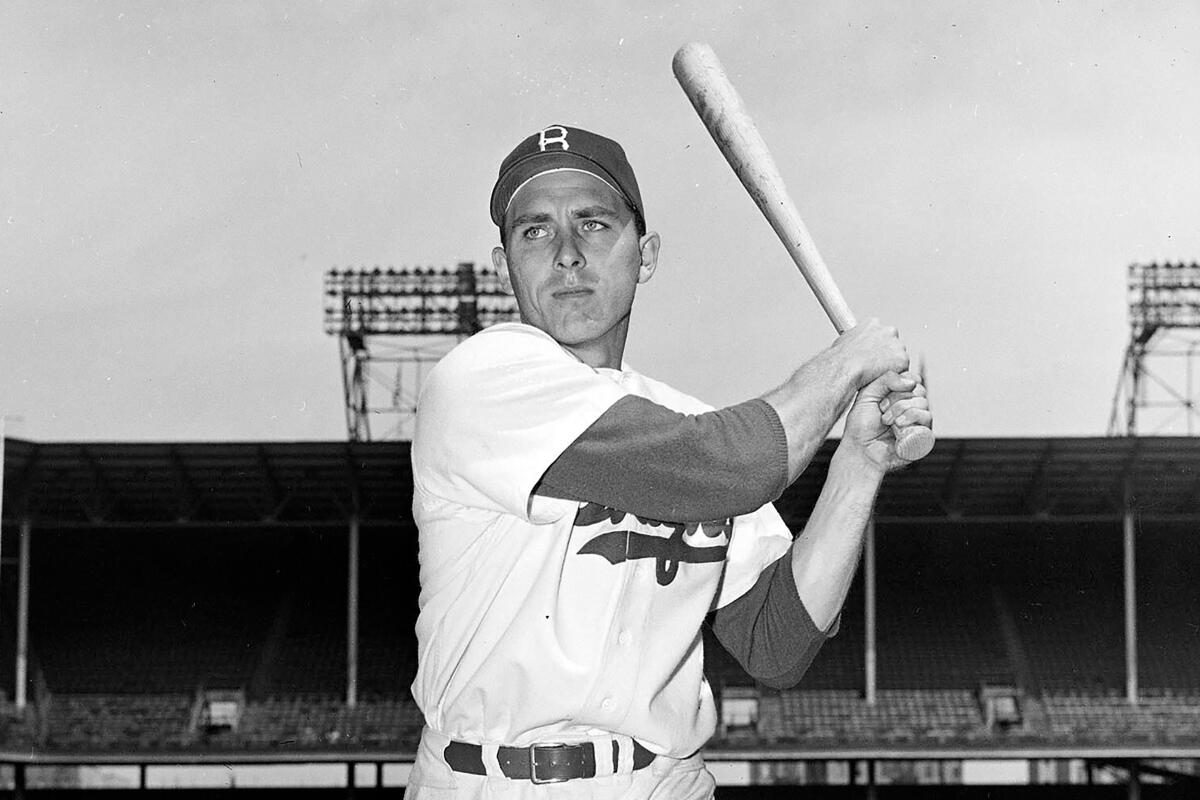Gil Hodges is also a member of the Hall of Fame.
The final game of the 1943 campaign was Hodges’s first game with the Dodgers. And given that he joined the Marines after the season ended and served as a gunner for the 16th Anti-Aircraft Battalion, it might have been his last game ever. Hodges and his battalion stormed the Okinawa beaches in April 1945 and engaged in fierce combat. For his bravery in a fighting area, he received a Bronze Star. Hodges described the incident in a letter to his family.

“When we arrived at Okinawa on April 1st, things really got out of hand. We were constantly under air attack, and the ships were seriously bringing the planes down. You can’t do anything but stand there and wait for something to happen, which is similar to being chained up on a ship. When everyone noticed a Japanese Zero flying around where we were tethered, they really let loose. Given the volume of gunfire that was being exchanged at the time, I fail to see how he could have managed to flee. He was the aircraft that really scared us all. He began to move away from the gunfire before being hit, which caused him to circle before diving to his death. He began to descend, and boy was he really moving. He blew himself up after colliding with the bow of another LST not too far from our ship. I’m not sure how many people were harmed, but I’m sure it was a lot. That’s just one incident, though, and I won’t get into any more at this time because I could probably sit here and write for the rest of the day and still not be done.
More information about Hodges’ experience in the Marines is available here.
Before the 1946 season began, Hodges was released and joined the Dodgers again. Having spent 1946 in the minors, he returned in 1947 to the majors to remain. He began his career as a catcher, but the Dodgers switched him to first base before the 1948 season because they wanted to use his bat and realized Roy Campanella would always be a stronger option behind the plate. I gave Gil Hodges, our other rookie catcher, a first baseman’s glove, according to manager Leo Durocher. The best first baseman I have seen since Dolph Camilli is standing in front of me three days later.

Hodges had at least 20 home runs in 11 straight seasons and at least 100 runs batted in in seven straight seasons.
As his teammate Clem Labine put it, “Not getting booed at Ebbets Field was an amazing thing,” he was the most adored member of the Boys of Summer Dodgers. Gil was the only player I can think of who the crowd never, I mean never, booed. Those fans understood their baseball.
Despite going 0 for 21 in the World Series in 1952, Hodges’ supporters were unwavering. According to Hodges, who discussed it in his book “The Game of Baseball,” “the thing that most people hear about that one is that a priest stood in a Brooklyn pulpit that Sunday [during the World Series] and declared, ‘It’s too hot for a sermon. Simply return home and pray for Gil Hodges. However, I also won’t forget the hundreds of people who sent me letters, sent me telegrams, and sent me postcards throughout that World Series. Not a single negative message was sent. Everyone made an effort to say something kind. My morale was greatly affected, if not my batting average. Keep in mind that the Dodgers had never won a World Series in 1952. I could have changed everything if I had hit a few base hits in the correct places.
/cdn.vox-cdn.com/uploads/chorus_asset/file/23069326/1335486778.jpg)
On April 2, 1972, Hodges passed away. Hodges had just finished a game of golf with his coaches while managing the Mets (Hodges was the manager of the 1969 “Miracle Mets”). He suffered a severe heart attack and passed out as he made his way to his hotel room. Joe Pignatano, his coach, hastened to his aid. Hodges’ head was bleeding profusely from the back, which he had struck on the ground as he collapsed. As soon as I placed my palm beneath Gil’s head, the blood stopped flowing. I was aware he was gone. He passed away in my arms.
Hodges had just turned 47.
Hodges was chosen by the Golden Era Committee in 2021 after spending 15 years on the normal ballot but never been nominated to the Hall of Fame. Gil Hodges Jr. remarked, “It’s a beautiful thing that happened for our family. “We’re all happy that Mom, who is 95, got to witness it. We are just grateful and thankful that it has finally materialized because we have all waited a very long time.
Tom Seaver, who played for Hodges with the Mets, had one last thing to say. “Gil Hodges was the most significant figure in my professional life. Above all, he showed me how to conduct yourself professionally.